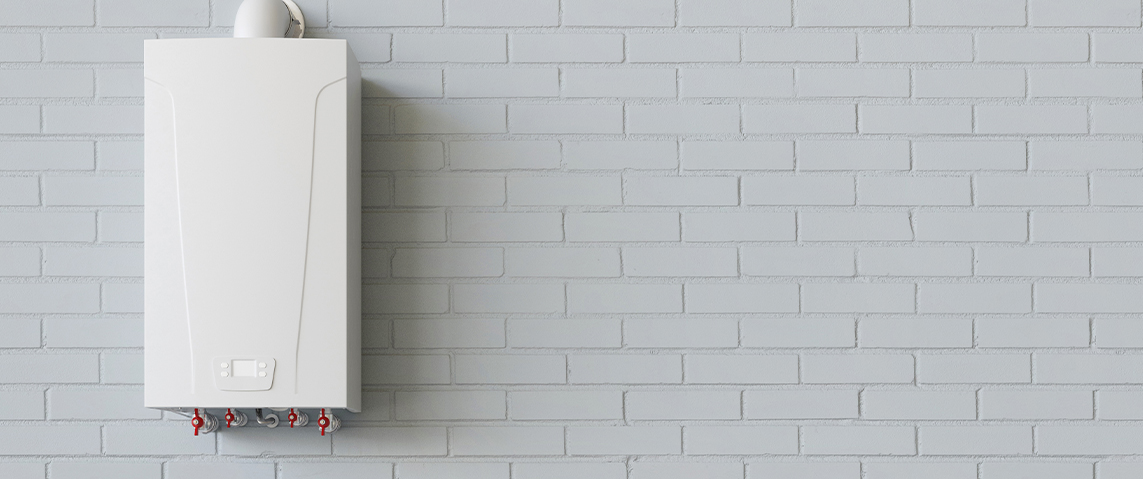How does a boiler work?

How Boilers Work
A boiler works by heating water, which is then circulated through pipes and radiators to provide heat throughout a building. The basic components of a boiler include a burner, a heat exchanger, a pump, and a control system.
When you turn on your heating, the burner in the boiler is activated, which ignites a flame that heats up the heat exchanger. The heat exchanger is a metal chamber that transfers heat from the burner to the water in the boiler. The water is heated to the desired temperature and then pumped through pipes and radiators throughout the building.
The control system in the boiler is responsible for regulating the temperature of the water, ensuring that it stays at the right temperature for your needs. The control system also regulates the flow of water, ensuring that there is always enough hot water available for your needs.
Types of Boilers
There are several different types of boilers available in the UK, each with its own advantages and disadvantages. The most common types of boilers are the following:
Conventional Boilers: These are also known as traditional or regular boilers. They have a separate hot water cylinder and cold water tank, which are often located in the loft. Conventional boilers are suitable for larger homes with multiple bathrooms, as they provide a high volume of hot water.
System Boilers: System boilers are similar to conventional boilers, but they have a built-in hot water cylinder. This makes them a more compact option, as they don't require a separate cylinder and tank. System boilers are best suitable for medium to large homes that have multiple bathrooms.
Combi Boilers: Combi boilers were the most popular type of boiler in the UK. They don't have a separate hot water cylinder or cold water tank, and instead heat water on demand. This makes them a space-saving option, as they don't require much space for installation. Combi boilers are suitable for smaller homes with one or two bathrooms.
Maintaining and Repairing Boilers
To keep your boiler working efficiently, it's important to carry out regular maintenance and repairs. Here we got some tips for maintaining your boiler:
Have your boiler serviced annually: It's recommended that you have your boiler serviced annually by a qualified engineer. This will ensure that it's working efficiently and safely, and will help to prevent breakdowns.
Check the pressure: Your boiler's pressure should be between 1 and 2 bar. If it's too low, you may need to top up the pressure using the filling loop.
Bleed your radiators: If your radiators are not heating up properly, you may need to bleed them to release trapped air.
Keep the area around your boiler clear: Make sure that there are no obstructions around your boiler, as this can affect its performance.
If your boiler breaks down, it's important to get it repaired as soon as possible to prevent further damage. Here are some signs that your boiler may need repairing:
No hot water or heating: If your boiler is not producing hot water or heating, it may be a sign that there is a fault with the system.
Strange noises: If your boiler is making strange noises, such as banging or whistling, it may be a sign that there is a blockage or a fault with the pump.
Leaks: If you notice any leaks around your boiler or pipes, it's important to get them repaired as soon as possible to prevent water damage.
When it comes to maintaining and repairing your boiler, regular maintenance is key. It's recommended that you have your boiler serviced annually by a qualified engineer to ensure that it's working efficiently and safely. Checking the pressure of your boiler, bleeding your radiators, and keeping the area around your boiler clear can all help to keep it in good working order.
If your boiler breaks down, it's important to get it repaired as soon as possible to prevent further damage. Signs that your boiler may need repairing include no hot water or heating, strange noises, and leaks. Ignoring these signs can lead to more serious problems down the line and can even be dangerous.
In addition to regular maintenance and repairs, there are also several ways to improve the efficiency of your boiler and reduce your energy bills. These include:
Insulating your home: Properly insulating your home can help to keep the heat in, reducing the amount of energy required to heat your home.
Upgrading your boiler: If your boiler is more than 10 years old, it may be time to consider upgrading to a newer, more efficient model.
Installing a smart thermostat: A smart thermostat allows you to control the temperature of your home remotely, helping to reduce energy wastage.
Using a timer: Setting a timer for your heating system can help to ensure that it's only on when you need it, reducing energy wastage.
Using radiator reflector panels: Radiator reflector panels can help to reflect heat back into the room, reducing the amount of heat lost through the walls.
In conclusion, a boiler is a vital part of any central heating system in the UK. It works by heating water and circulating it through pipes and radiators to provide heat and hot water throughout a building. There are several different types of boilers available, including conventional, system, and combi boilers, each with its own advantages and disadvantages.
Cover your boiler with a boiler breakdown cover.
If you need help regarding boiler installation, boiler repair or boiler service, our team of engineers from the repair network can help you.
Call us now, Get a quote.

 Appliance
Appliance







